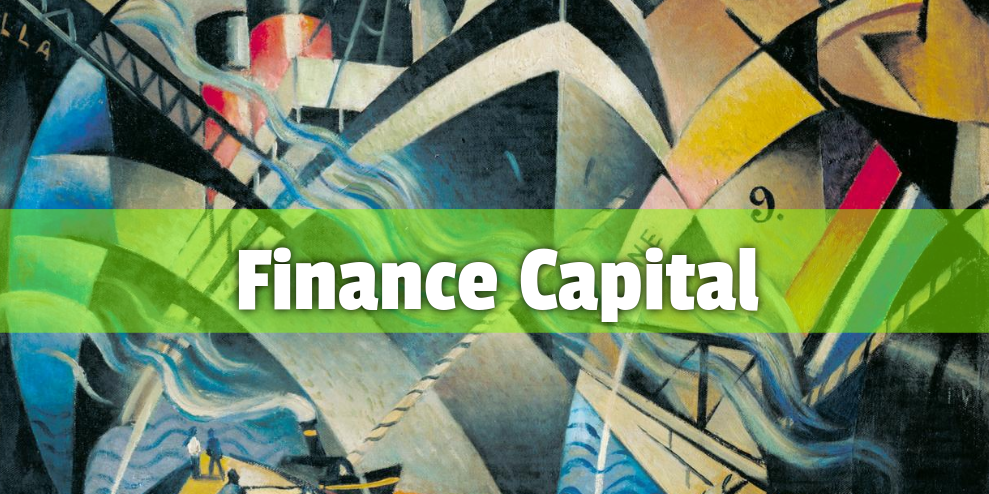Finance capital

Fusion of banking and industrial capital.
With the entry into its imperialist phase, capitalism transforms the structure of each national capital. The result of the extraordinary concentration and centralization of capital is light-years away from the free-market capitalism that had operated during rising capitalism. Increasingly dependent on the banks, individual capitalists will exchange the shares of their companies for shares in the banks themselves, thus becoming poolers of the risk of capital as a whole. The result, the merger of industrial and banking capital, is contemporary finance capital. The bourgeoisie of the patrons and captains of industry is transformed into a financial oligarchy and increasingly merges with the state bureaucracy. The ruling class thus tests what will be its characteristic form in the decadence and early forms of state capitalism.
http://dictionary.marxismo.school/Finance capitalAt the same time, the personal union of the banks with the largest industrial and commercial enterprises, the merger of the one and the other through share ownership, through the entry of the bank directors into the supervisory boards (or directives) of the industrial and commercial enterprises, and vice versa, is developing (...) The "personal union" of banks and industry is completed by the "personal union" of one or the other with the government. The positions on the supervisory boards," writes Jeidels, "are voluntarily entrusted to well-known personalities, as well as to former state officials, who can facilitate to a considerable extent (!!) relations with the authorities. (…)
The result is, on the one hand, a growing merger, or to use N.I. Bukharin's apt expression, the pooling of banking and industrial capital, and, on the other, the transformation of banks into institutions of a truly "universal character". (…)
In commercial and industrial circles one often hears lamentations against the "terrorism" of the banks (...) In the end, it is the same lamentations of small capital against the yoke of big capital, only in this case the category of "small" capital corresponds to a whole consortium! The old struggle between small and large capital is being reproduced at a new and immeasurably higher level of development (...)
Concentration of production; monopolies that derive from the same; merger or interlocking of banks with industry: such is the history of the emergence of finance capital and what that concept entails. (…)
The management of the capitalist monopolies becomes, in the general conditions of mercantile production and private property, the domination of the financial oligarchy (...)
[While] the apologists of imperialism and finance capital do not expose but conceal and embellish the mechanism" of the formation of the oligarchies, their procedures, the amount of their "licit and illicit" income, their relations with the parliaments etc., etc.
Lenin. Imperialism, the highest stage of capitalism, 1916